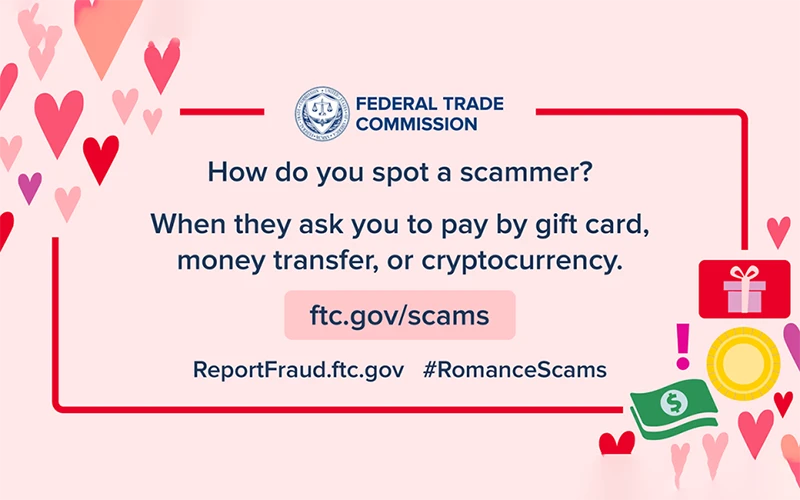From FTC Consumer Advice – By Jim Kreidler, Consumer Education Specialist –
People make up lots of stories about why you need to send them money. They might say you’ve won a prize, your family member is in an emergency, or that they love you. And in all these examples, they now need you to send them money. But how do you know what’s a scam and what’s legit, especially when you think it’s someone you know and care about asking? Read on to learn one of the surest ways to spot a scam.
Scammers want your money, in a hurry, and they don’t want you to be able to get it back. But a clue to spotting and stopping these scammers is knowing how they ask (or tell) you to pay. Listen for anyone who insists you pay one of these ways. If they do, chances are they’re a scammer:
- Gift cards: Gift cards are for gifts, not payments. They’re popular with scammers because once you give the gift card PIN to someone, it’s like you just handed over cash. Gift cards also give you fewer protections, compared to other payment options.
- Money transfer: When you wire money through a company like Western Union or MoneyGram, it’s easy for a scammer to take your money and disappear. Wiring money is also like sending cash — once the scammer has it, you probably can’t get it back.
- Cryptocurrency: Real companies or government agencies will never demand that you pay with cryptocurrency. And they’ll never say to buy crypto to sort out a problem or protect your money. And no utility company will demand payment in crypto. Who does any of that? Scammers.
Contact Kleshinski, Morris & Morrison CPAs
If you need any kind of accounting or tax help, contact the experts at Kleshinski, Morrison & Morris CPAs. Call our office at 419-756-3211, reach us by sending email to kmm@kmmcpas.com, or just fill out the contact form on our website at this link.
How scammers tell you to pay – See video below

